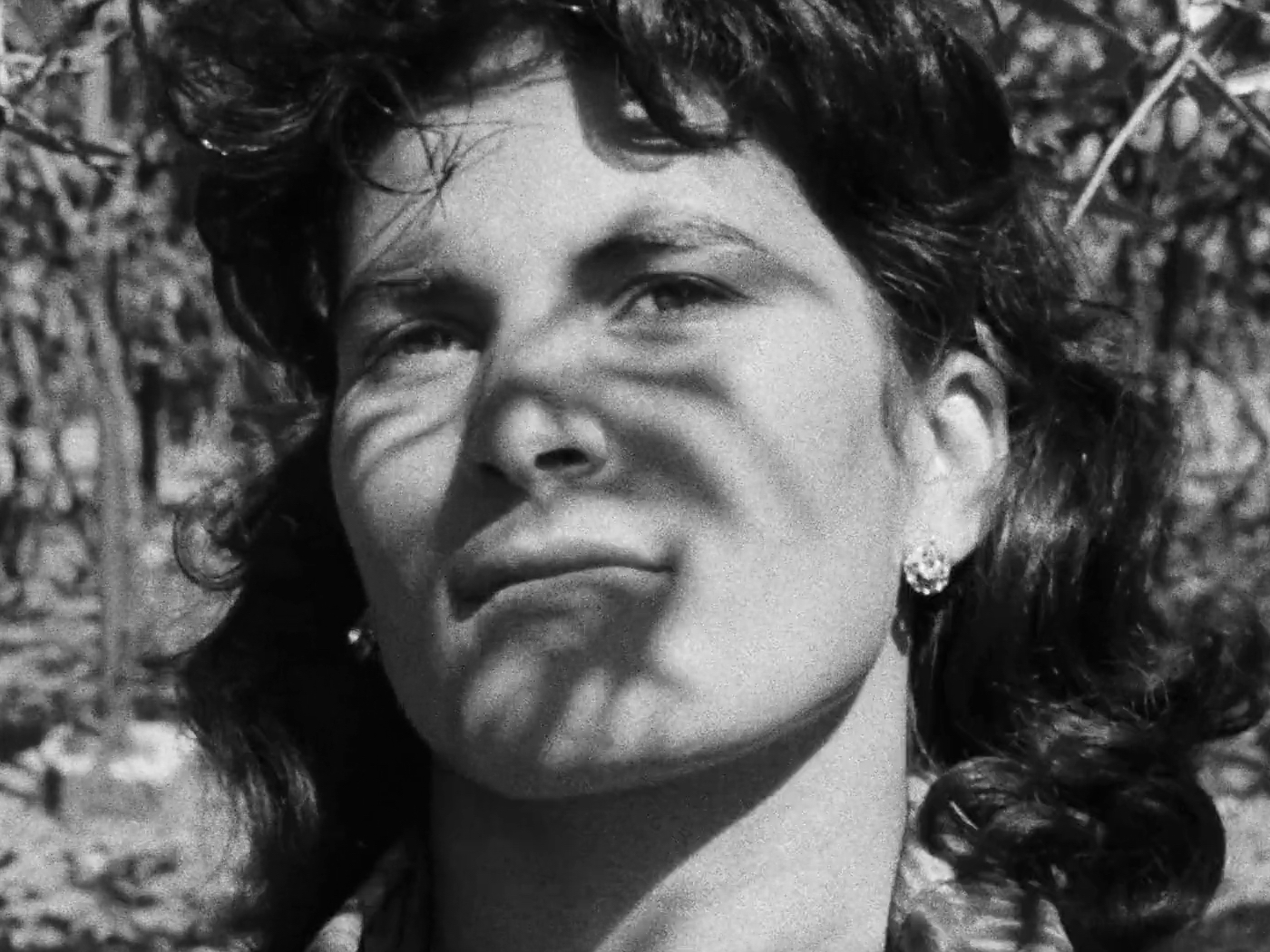
Boycotted and covertly censored by the producers and directors who formed part of the Commissione ministeriale, which decided on which short should accompany features in cinema programmes at the time, Essere Donne was a commission from the Communist-aligned production company Unitelefilm, who had approached a selection of left-wing filmmakers to investigate fully a collective social problem. The result is a series of interviews conducted by Mangini with women workers from the olive groves of Puglia to the factories of Milan. Often filmed as they work at home or at the factory, these women speak candidly about issues including abortion, housework, unionisation and boycotts (Daniella Shreir).
“Farete cinema e sapete benissimo che esistono cose che avete fatto alle quali siete enormemente affezionati e altre meno, è così. Essere donne è fra i miei lavori quello a cui tengo di più e sono maggiormente affezionata perché questo documentario è stato giudicato da quella che era la democrazia cristiana che aveva il terrore infimo di qualsiasi idea e scopo di sinistra così aveva inventato un meccanismo per arginare il problema. Siccome per la legge di allora il documentario veniva abbinato ai film, in quanto si pensava che uno spettacolo doveva essere fantasia, ma anche un richiamo alla realtà. Per il documentario esisteva una commissione di qualità la quale decideva se il documentario aveva le caratteristiche tecniche e artistiche per poter essere visto perché se era una cosa confusa, malfatta era inutile farla arrivare nelle sale e poi era necessario avere un visto di censura. La democrazia cristiana che negli anni Sessanta faceva il bello e il cattivo tempo ha deciso che le commissioni di censura e di qualità dovessero oltre a censurare dare un giudizio estetico sul documentario. Al tempo Essere donne non è stato censurato perché la censura ricorreva prepotentemente e i giornali schiamazzavano, le riviste di cinema protestavano, venivano inviate petizioni ai ministri e quindi per questo mi diedero il visto di censura. E dunque questo film, che era andato al festival di Lipsia, ed era stato visto da Joris Ivens, Paul Rotha e John Grierson le eccellenze di allora. Nomi che, forse oggi non dicono niente, ma che allora erano il meglio, hanno dato al mio film il premio della giuria, cosa che mi ha dato una felicità incredibile. Queste persone, alle quali io credevo moltissimo, hanno creduto in me.”
Cecilia Mangini in conversazione con Carolina Caterina Minguzzi1
- 1Carolina Caterina Minguzzi, “Intervista a Cecilia Mangini,” Cinefilia Ritrovata, 30 Giugno 2019.
EN
“As is always the case with works that constitute a powerful experience and discoveries of an existential nature, I remain very close to Essere donne. In this case, the experience was that of the factory, and within the factory the production line, the compartmentalisation, the short timescales, the confirmation of Gramsci’s teachings on Fordism. The discovery was that of the women ‘worked’ by the factory, of peasant work, of families, of their relationship to their hopeless situation, in the initial moment of their (and my) confused questioning of the need for change. [...] I discovered that women are restless, often openly dissatisfied with the existential burden that weighs upon them, and secretly driven to understand what is not working and how to free themselves of the endless penalties imposed on them since their childhood. A full awareness of the system that penalises them – its causes, its reasons – is still lacking. The women are unconsciously still only becoming complete women. This embryonic situation applies to me; it applies to all of us; it even applies to those who refuse to grow. It is undoubtedly down to hindsight and to a contemporary reading of Essere donne that I now believe that I was instinctively driven to identify myself with all of them – entering into the film as an olive-picker in Apulia or as a weaver at the loom in the north."
Cecilia Mangini1
- 1Cecilia Mangini, “Essere donne,” Another Screen, 2021.

